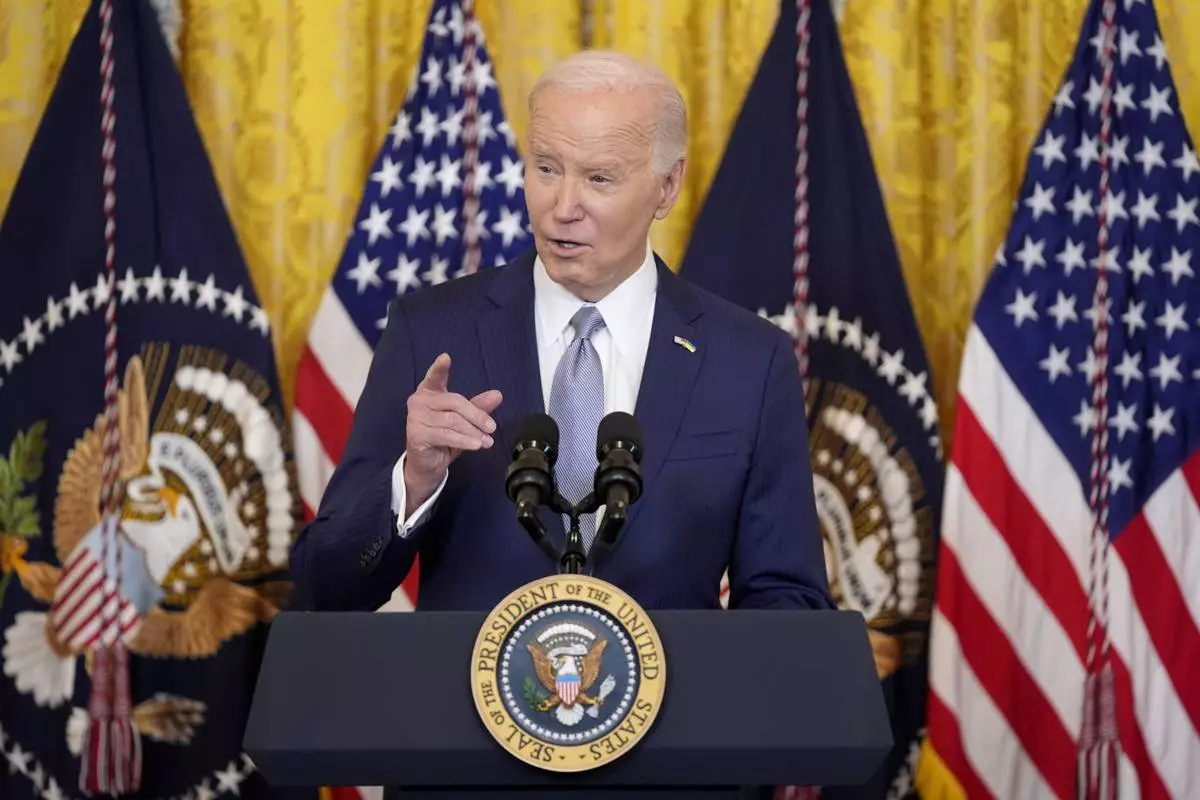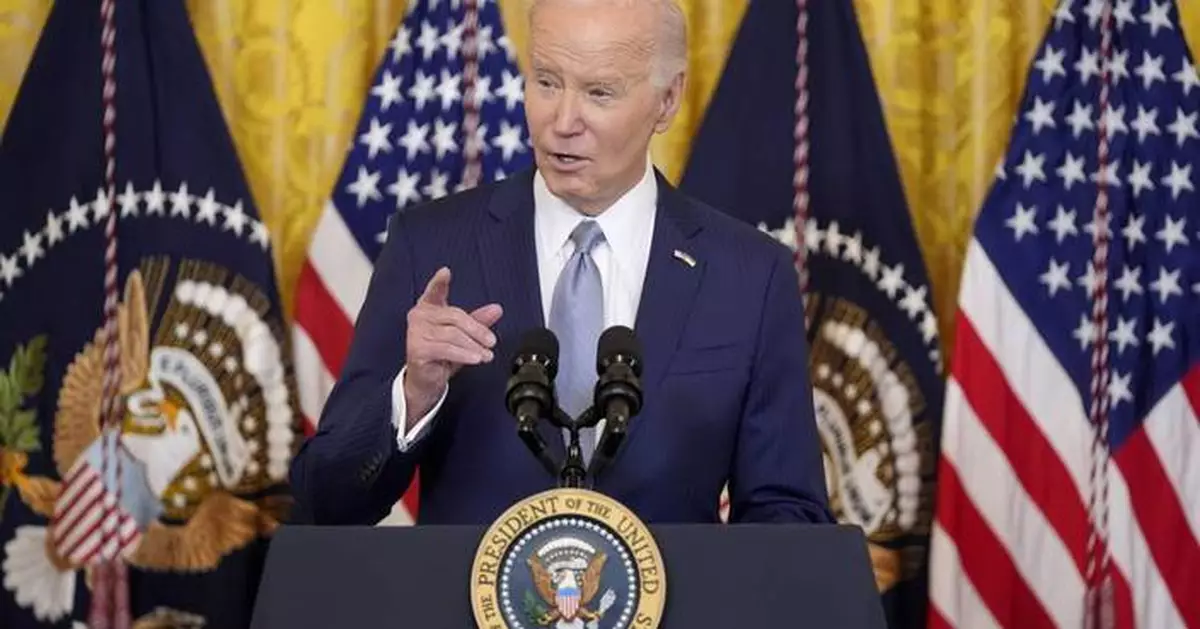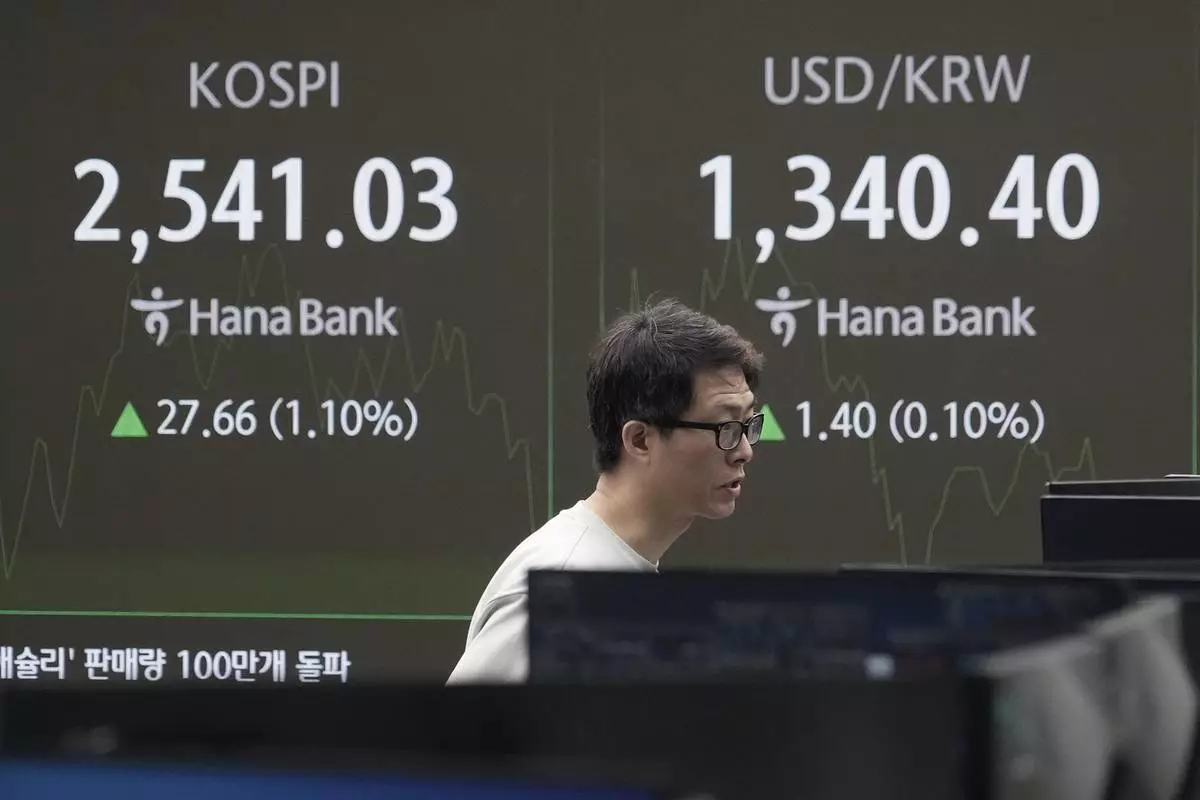Sixteen Republican-led states are suing to end a federal program that could potentially give nearly half a million immigrants without legal status who are married to U.S. citizens a path to citizenship.
The coalition filed suit Friday to halt the program launched by President Joe Biden in June, saying in court filings that the administration bypassed Congress to create a pathway to citizenship for “blatant political purposes.”
“This action incentivizes illegal immigration and will irreparably harm the Plaintiff states,” the suit filed in federal court in Tyler, Texas, says.
Under the policy, which started taking applications Monday, many spouses without legal status can apply for something called “parole in place,” offering permission to stay in the U.S., apply for a green card and eventually get on a path to citizenship.
But the program has been particularly contentious in an election year where immigration is one of the biggest issues, with many Republicans attacking the policy and contending it is essentially a form of amnesty for people who broke the law.
Texas Attorney General Ken Paxton said in a statement Friday that the plan "violates the Constitution and actively worsens the illegal immigration disaster that is hurting Texas and our country.”
The suit filed against the Department of Homeland Security, DHS Secretary Alejandro Mayorkas and other Biden administration officials accuses the agency of attempting to parole spouses “en masse,” which the states contend is an abuse of power. The states also filed a motion asking for the program to be put on hold while the lawsuit proceeds.
In a post on X, Florida Attorney General Ashley Moody said her state is challenging the parole in place policy because she believes the Biden administration “is illegally using ‘parole’ in a systematic way to advance their open-borders agenda.”
The conservative nonprofit America First Legal, which is headed by Stephen Miller, a former adviser to President Donald Trump, is serving as co-counsel in the lawsuit.
Department of Homeland Security spokesperson Mayra Alejandra said the agency will defend the Keeping Families Together program in court and continues to process already submitted applications as well as accept new applications.
“Keeping Families Together is grounded in well-established legal authority, and its purpose — enabling the families of U.S. Citizens to live without fear of separation — is consistent with fundamental American values,” Alejandra said.
White House spokesperson Angelo Fernández Hernández fired back against Republicans “playing politics” and characterized the lawsuit as another form of family separation.
“This lawsuit is seeking to force U.S. citizens and their families, people who have lived in the United States for more than ten years, to continue to live in the shadows,” Fernandez said in a statement.
The bipartisan immigration and criminal justice organization FWD.us said the program is in compliance with the law and noted the timing of the lawsuit — as Vice President Kamala Harris accepted the Democratic nomination for president.
“The only motivation behind this lawsuit is the cruelty of tearing families apart and the crass politics of hoping a judge might do the bidding of the anti-immigrant movement,” the organization said in a statement.
Karen Tumlin, founder and director of the Justice Action Center, called the legal challenge “unsurprising yet extremely disappointing and cruel.”
“However, it’s important to emphasize that nothing changes for now, and the process is still open and accepting applications,” she said.
To be eligible for the program, immigrants must have lived continuously in the U.S. for at least 10 years, not pose a security threat or have a disqualifying criminal history, and have been married to a citizen by June 17 — the day before the program was announced.
They must pay a $580 fee to apply and fill out a lengthy application, including an explanation of why they deserve humanitarian parole and a long list of supporting documents proving how long they have been in the country.
If approved, applicants have three years to seek permanent residency. During that period, they can get work authorization. The administration estimates about 500,000 people could be eligible, plus about 50,000 of their children.
Before this program, it was complicated for people who were in the U.S. illegally to get a green card after marrying an American citizen. They can be required to return to their home country — often for years — and they always face the risk they may not be allowed back in.
The lawsuit contends that states will bear the burden of additional immigrants staying in the country.
Texas, the suit says, spends tens of millions of dollars each year on a program that provides health insurance for children, including those in the country illegally. It says that the state also spends millions each year “for increased law enforcement as its citizens suffer increased crime, unemployment, environmental harm, and social disorder due to illegal immigration.”
Because the program beneficiaries will be entitled to work authorization, those additional workers “will drive down the wages of Texas residents, directly harming the State and its citizens,” the lawsuit says.
Evelyn Wiese, an immigration attorney at Americans for Immigrant Justice, described the lawsuit as an “attack” on mixed status families who have spent years contributing to their communities in the United States.
“Trying to rip apart these families and prevent them from accessing a lawful pathway to status in the U.S. is cruel and reflective of anti-immigrant extremism,” she said.
AP writer Rebecca Santana contributed to this report from Washington.

FILE - President Joe Biden speaks during an event with the National Governors Association in the East Room of the White House, Feb. 23, 2024, in Washington. (AP Photo/Evan Vucci, File)














